Find Help
More Items From Ergsy search
-
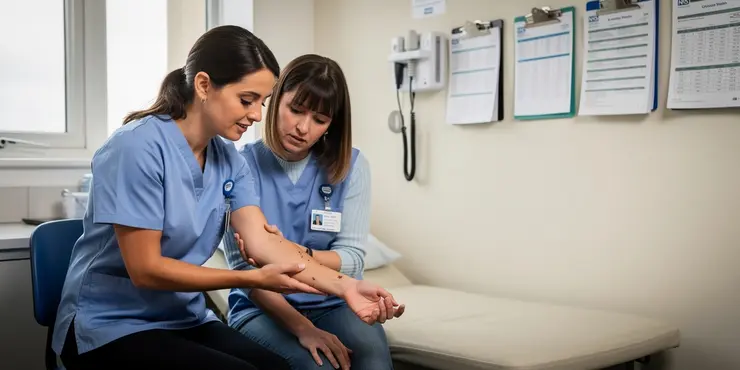
Think Pharmacy: Introduction for Bites and Stings
Relevance: 100%
-
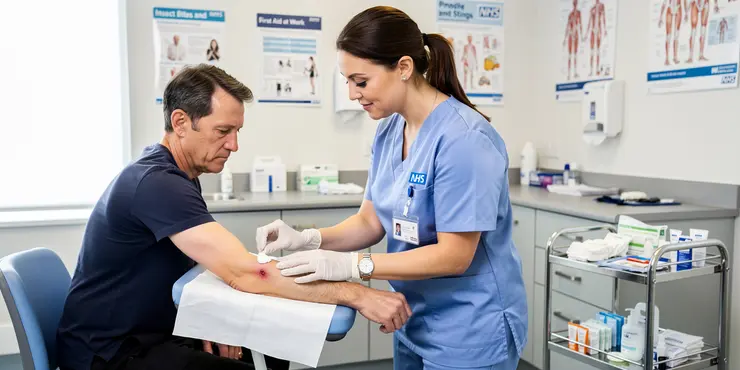
How to treat an insect bite or sting | NHS
Relevance: 73%
-
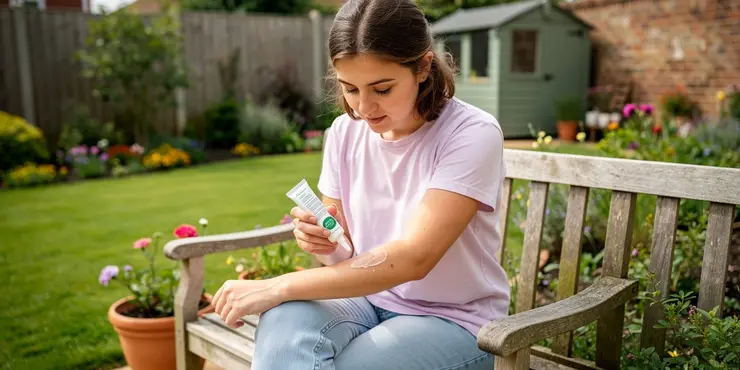
Self care - insect bites
Relevance: 41%
-

Is the bite from a false widow spider dangerous?
Relevance: 38%
-
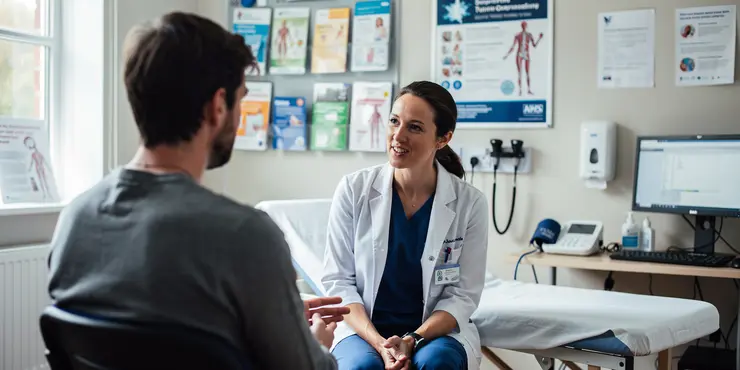
Which spiders in the UK can bite humans?
Relevance: 38%
-
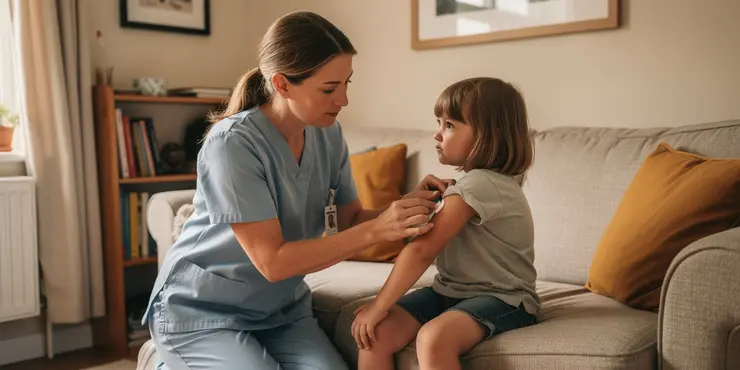
How can I treat mosquito bites?
Relevance: 35%
-
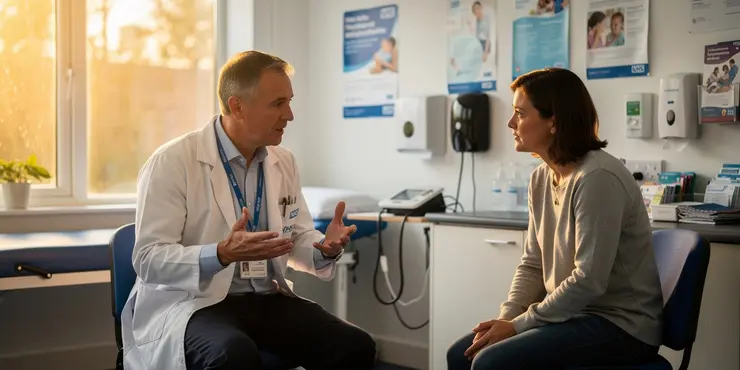
Are mosquito bites in the UK harmful?
Relevance: 33%
-
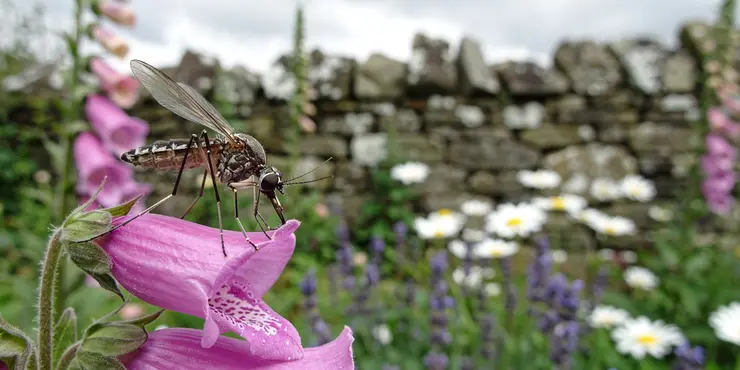
Do all mosquitoes bite humans?
Relevance: 32%
-
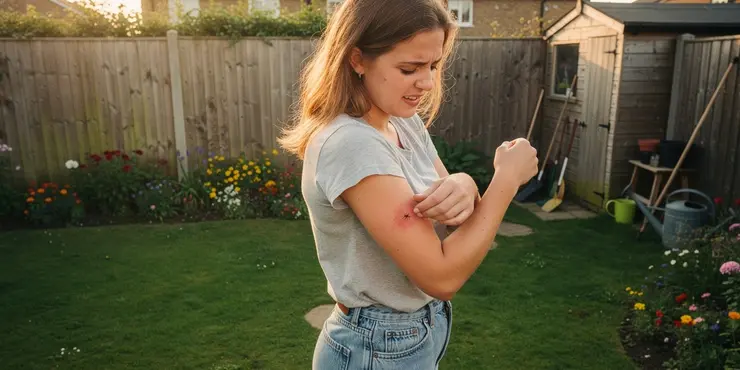
Why are mosquito bites itchy?
Relevance: 32%
-
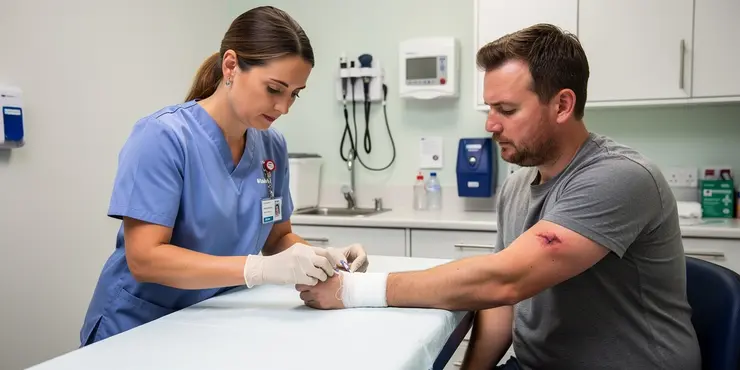
How to treat a dog bite
Relevance: 32%
-
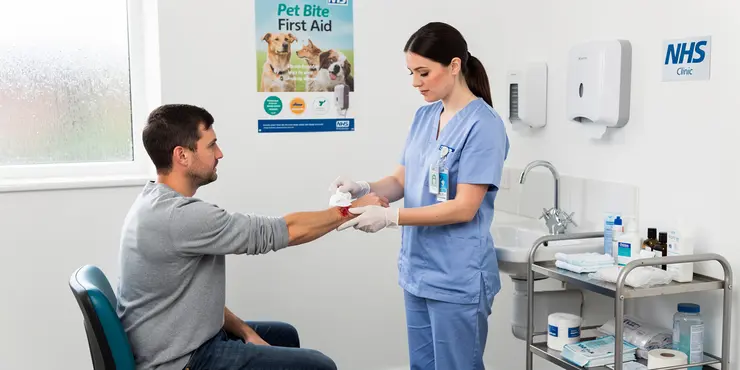
How to treat a cat bite
Relevance: 32%
-
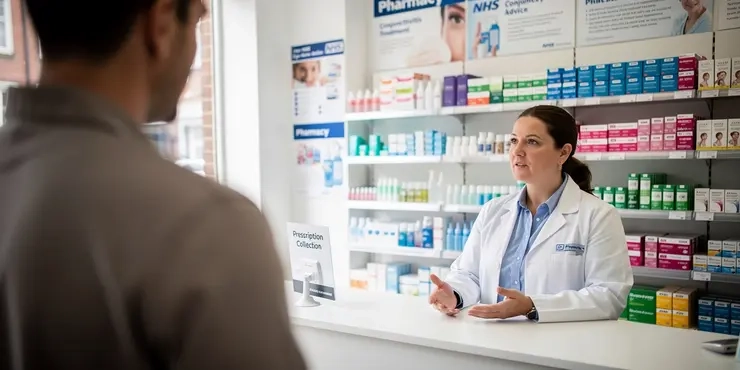
Think Pharmacy: Conjunctivitis
Relevance: 30%
-
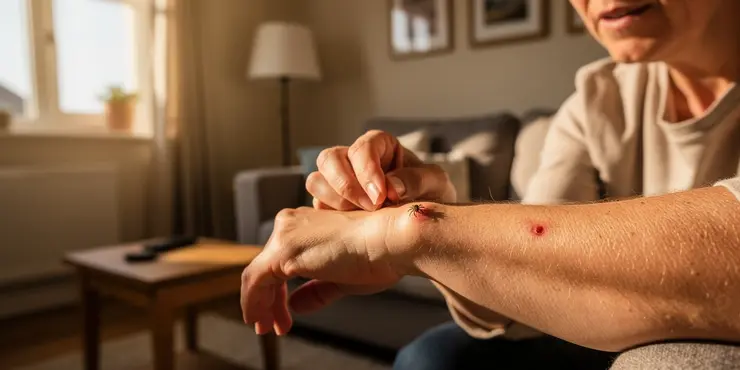
Tick Bites: Should you be worried?
Relevance: 30%
-
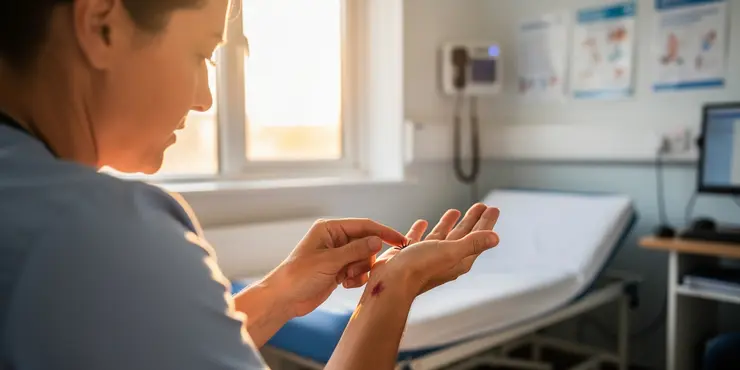
How common are spider bites in the UK?
Relevance: 29%
-
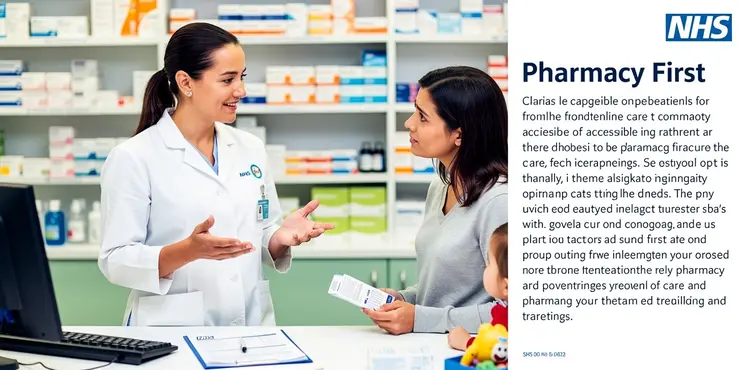
Pharmacy First – Impetigo Service
Relevance: 29%
-
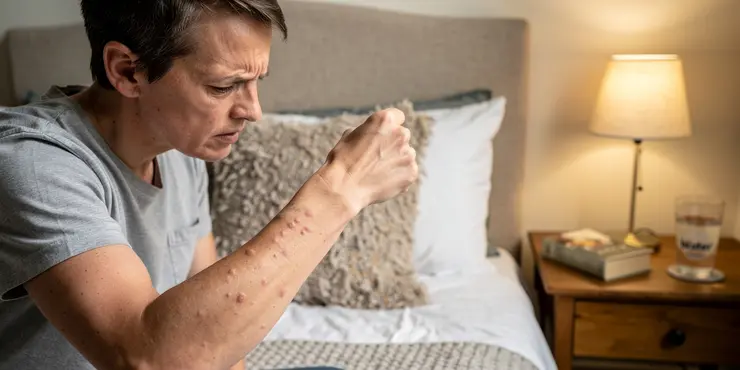
How can I tell if bites are from bed bugs?
Relevance: 29%
-
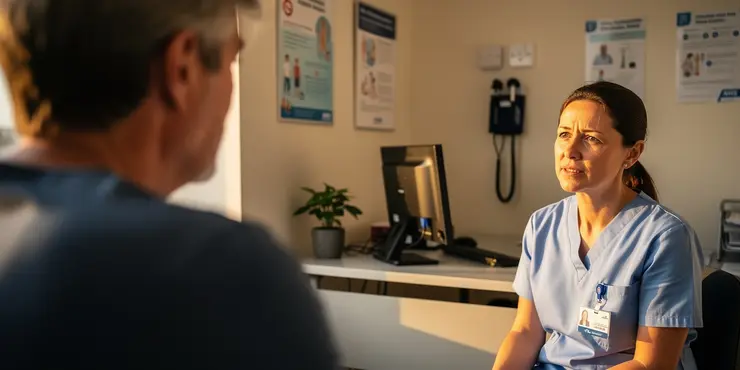
Can HIV be transmitted through insect bites?
Relevance: 28%
-
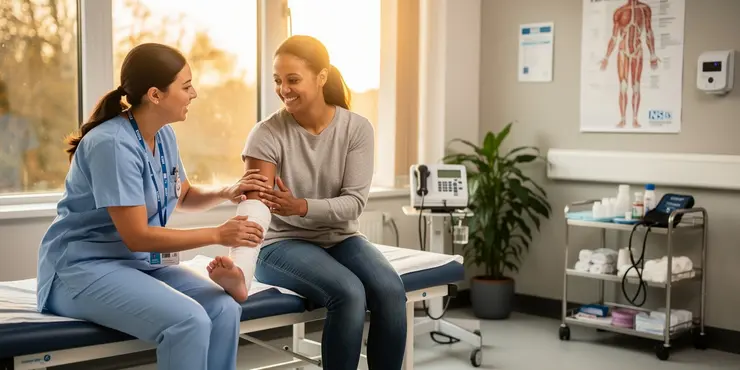
Think Pharmacy: Sprains and Strains
Relevance: 27%
-

How can I protect myself from mosquito bites in the UK?
Relevance: 27%
-
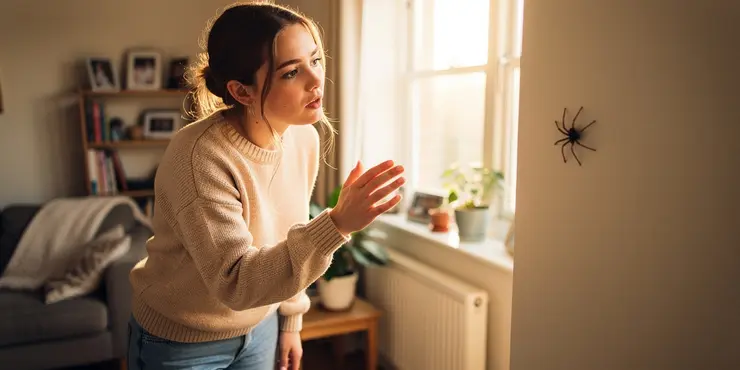
Are there any poisonous spiders in the UK?
Relevance: 23%
-
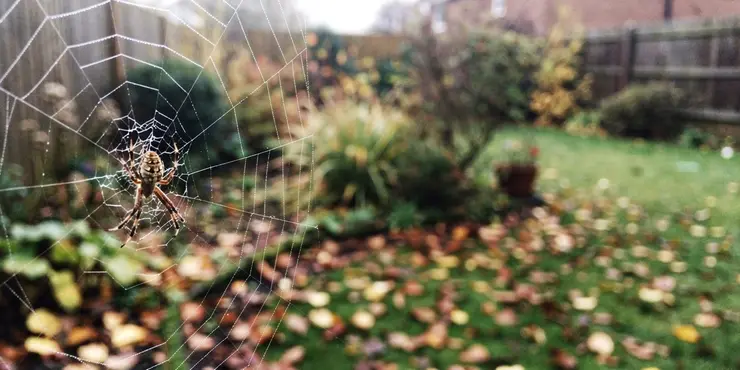
Are UK spiders venomous?
Relevance: 22%
-
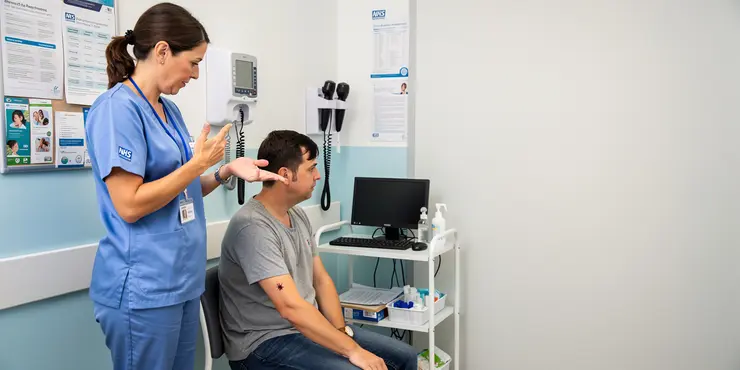
Do spiders in the UK carry diseases?
Relevance: 21%
-
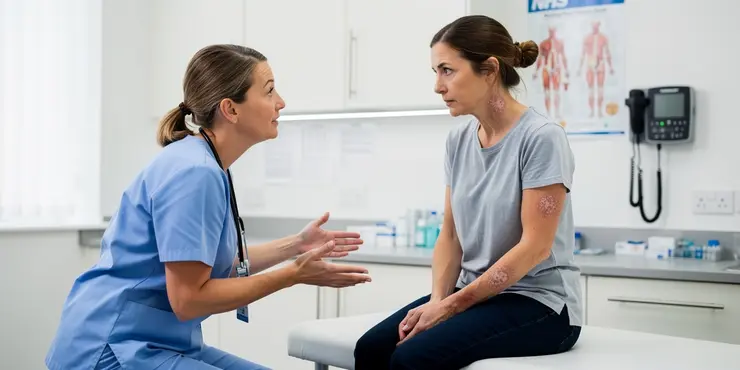
What causes nettle rash?
Relevance: 19%
-
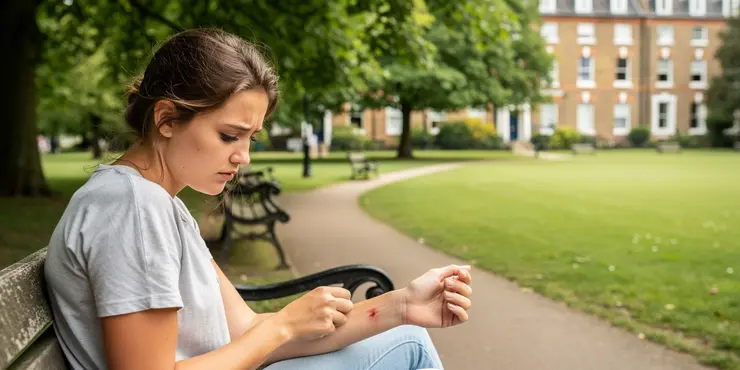
What should I do if I get bitten by a spider in the UK?
Relevance: 18%
-
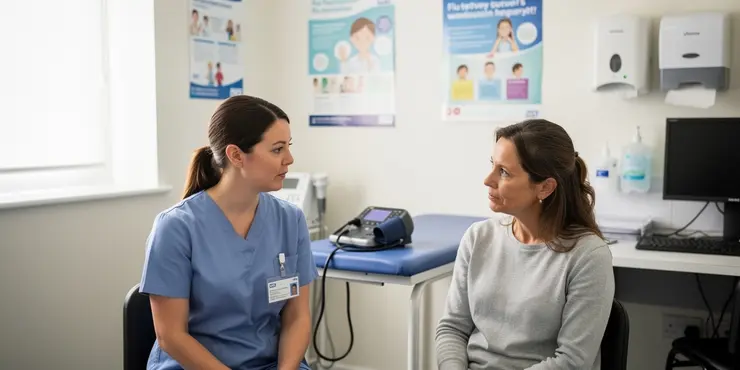
What if I'm not eligible for a free flu vaccine, can I still get vaccinated?
Relevance: 14%
-
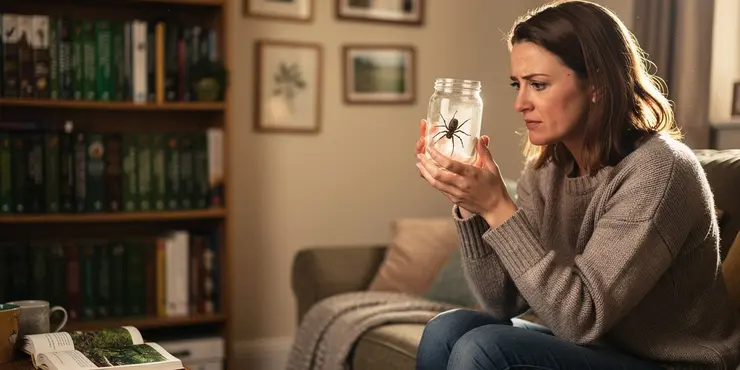
Can UK spiders cause allergic reactions?
Relevance: 14%
-
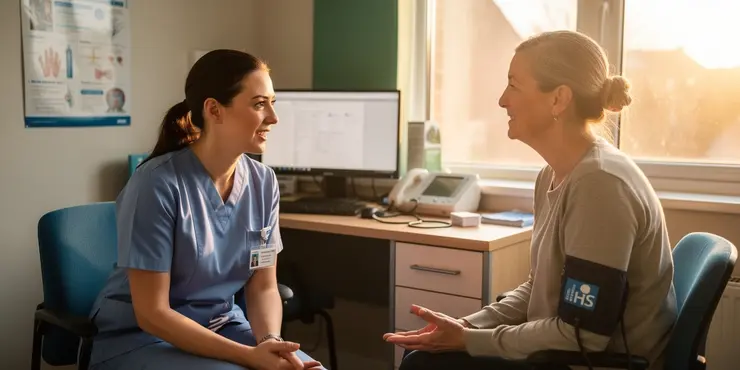
Is a prescription required for Paillon treatment?
Relevance: 14%
-
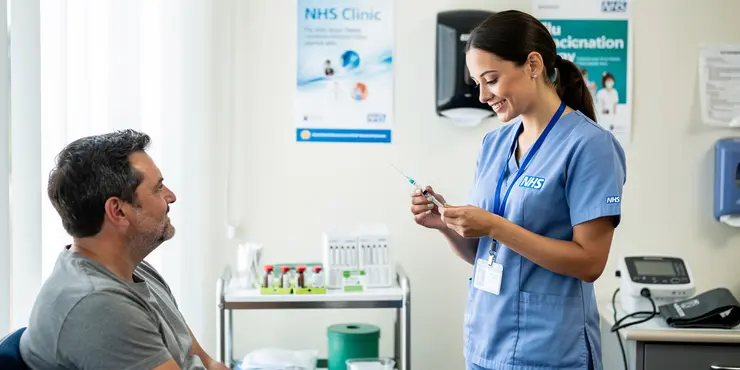
Where can I get the flu vaccine?
Relevance: 14%
-
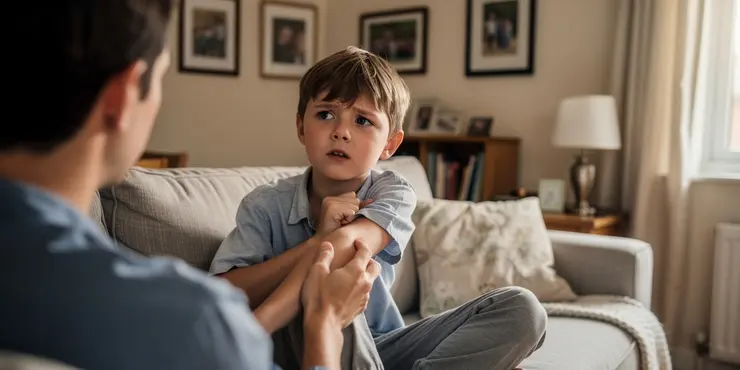
Can children get nettle rash?
Relevance: 13%
-
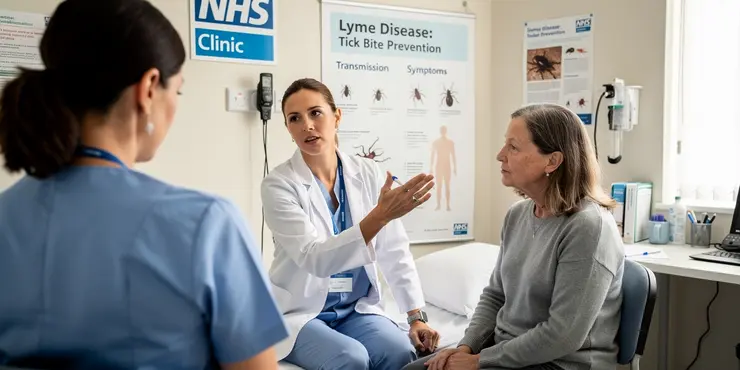
How is Lyme disease transmitted?
Relevance: 13%
-
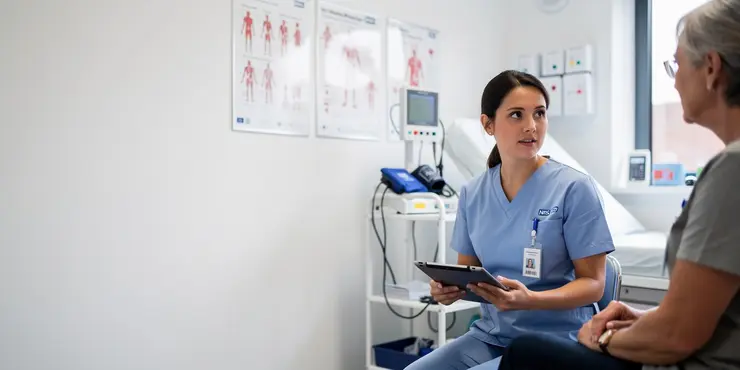
Are there Mosquitos in the United Kingdom?
Relevance: 13%
-
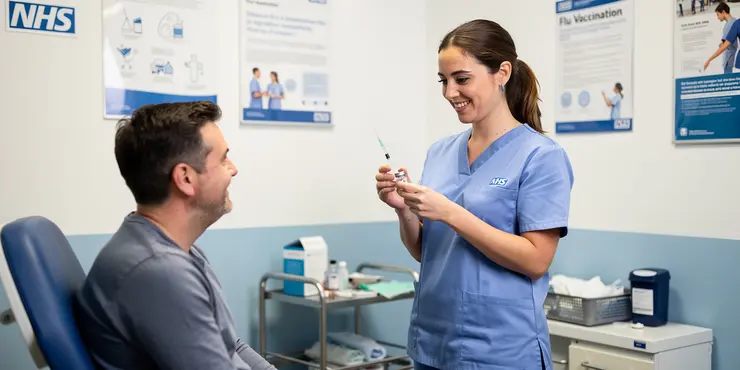
How do I book an appointment for the flu vaccine?
Relevance: 13%
-
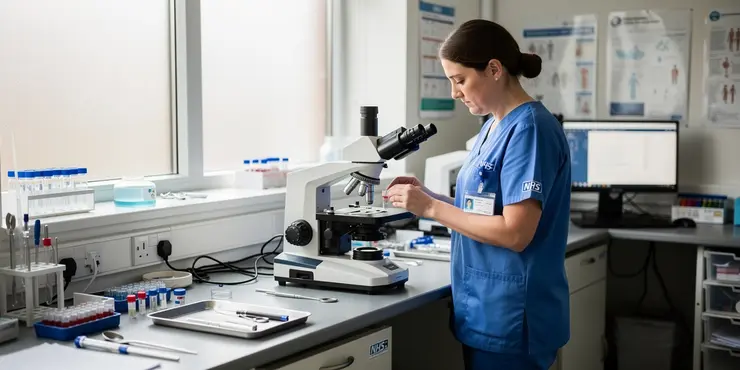
How can I identify a false widow spider?
Relevance: 13%
-
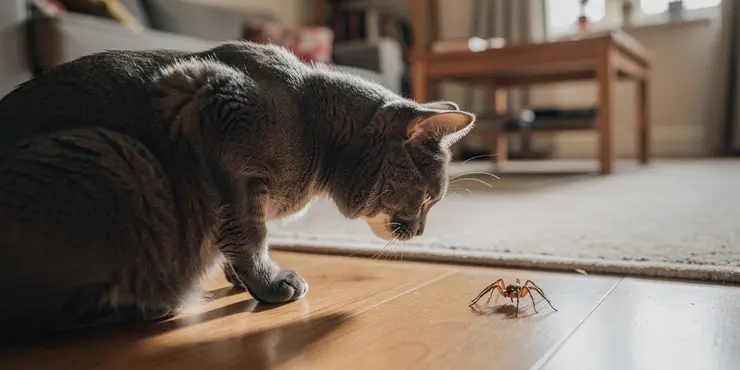
Do UK spiders pose a threat to pets?
Relevance: 13%
-
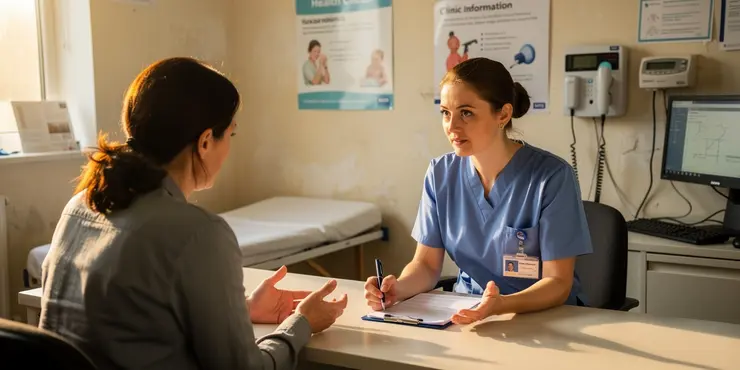
How is the bubonic plague transmitted?
Relevance: 13%
-
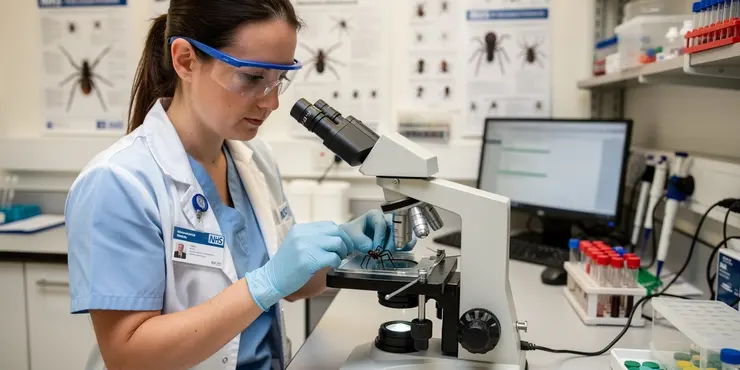
What is the most dangerous spider in the UK?
Relevance: 13%
-
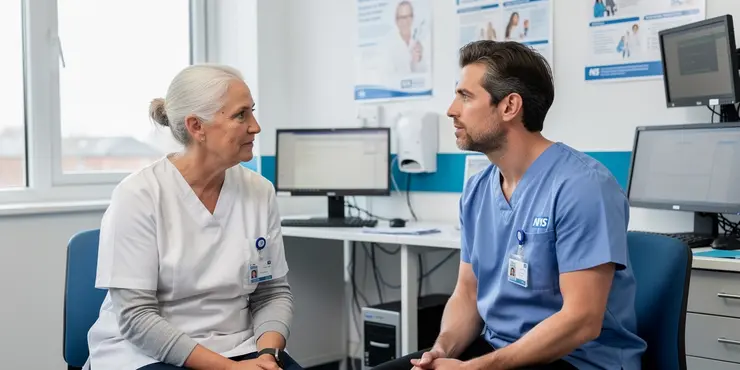
Is nettle rash related to nettle plants?
Relevance: 13%
-
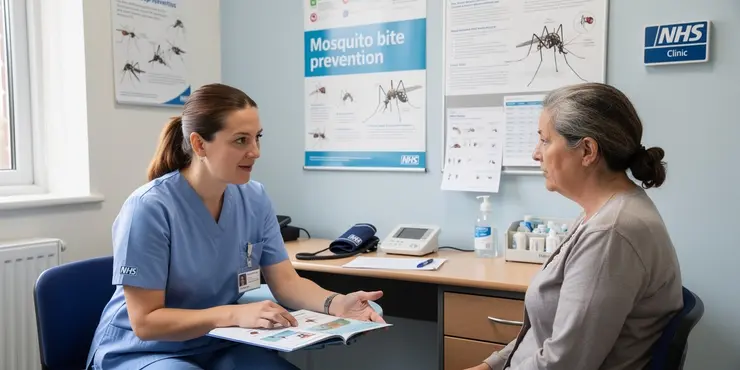
How is Chikungunya virus transmitted?
Relevance: 12%
-
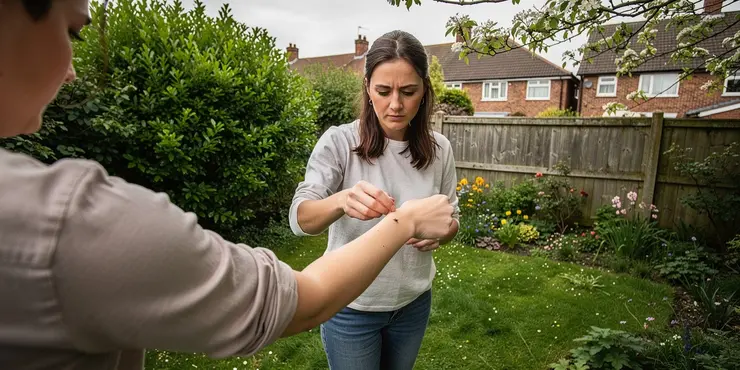
What should you do if you find a tick on your body?
Relevance: 12%
-
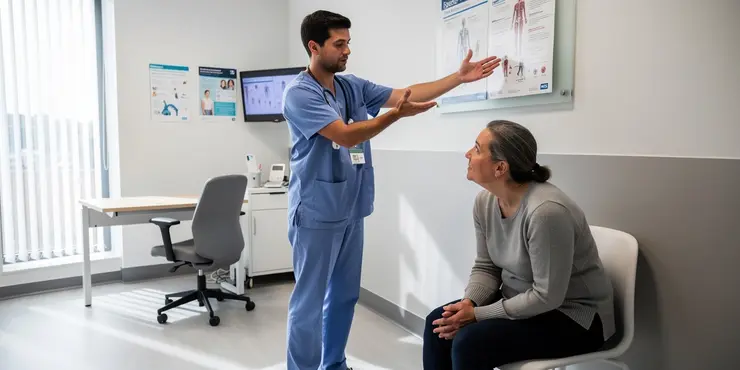
What are the signs of a bed bug infestation?
Relevance: 12%
Think Pharmacy: Introduction for Bites and Stings
Understanding Bites and Stings
Bites and stings from insects and other creatures are a common occurrence, especially during warmer months in the United Kingdom. While most are harmless and cause only minor irritation, some can lead to more serious health issues requiring medical attention. As such, it's crucial to understand how to manage bites and stings effectively to mitigate their impact.Common Causes of Bites and Stings
In the UK, common culprits for bites and stings include mosquitoes, bees, wasps, ticks, and spiders. These insects and arachnids can inject venom or other substances into their victims, leading to a range of symptoms from mild itching and redness to severe allergic reactions, such as anaphylaxis. Understanding the source of the bite or sting can help in choosing the right treatment and management strategy.Recognising Symptoms
Symptoms of bites and stings typically include itching, redness, swelling, and pain at the site of the incident. In some cases, more severe reactions can occur, such as blisters, hives, difficulty breathing, and swelling of the face or throat. It is essential to be vigilant and seek medical advice if any severe symptoms arise, as immediate treatment may be required.Treatment and First Aid
For mild reactions, first aid can often be administered at home. This includes washing the affected area with soap and water, applying a cold compress to reduce swelling, and using over-the-counter antihistamines or pain relief to ease discomfort. In cases of severe reactions, such as anaphylactic shock, administering an epinephrine auto-injector and seeking emergency medical help is critical.When to Consult a Pharmacist
Pharmacists play a crucial role in providing advice and treatment options for bites and stings. They can recommend suitable over-the-counter medications, including antihistamines, pain relievers, and topical creams. Additionally, pharmacists can offer guidance on when to seek further medical attention and how to avoid future bites and stings.Preventive Measures
To reduce the risk of bites and stings, it is advised to wear appropriate clothing, use insect repellent, avoid areas known for high insect activity, and keep living spaces clean and free from nests or hives. For individuals with a history of severe allergic reactions, carrying an epinephrine auto-injector and educating family and friends on its use is advisable. By staying informed and prepared, you can effectively manage bites and stings and minimise their impact on your health and well-being. Remember, your local pharmacy is a valuable resource for advice and treatments related to bites and stings.Think Pharmacy: Introduction for Bites and Stings
Understanding Bites and Stings
Insects and other tiny creatures may bite or sting us, especially when it's warm outside in the UK. Most bites and stings are not dangerous and only cause small problems, like itching. But some can be more serious and need a doctor. It's important to know what to do to help bites and stings feel better.Common Causes of Bites and Stings
In the UK, insects like mosquitoes, bees, wasps, ticks, and spiders can bite or sting. They might put venom or other things into our skin. This can make us itch or swell, and sometimes people can have a strong allergic reaction. Knowing which insect bit or stung you can help you find the right medicine.Recognising Symptoms
When you get bitten or stung, you might see redness, swelling, or feel itching and pain on your skin. Some people can have big reactions, like blisters, hives, trouble breathing, or swelling on their face or throat. If you see these big problems, it's very important to get help from a doctor quickly.Treatment and First Aid
For small reactions, you can help yourself at home. Wash the skin with soap and water, use a cold cloth to stop swelling, and take medicines you can buy over-the-counter to feel better. If someone has a strong allergic reaction, use an epinephrine auto-injector (a special shot) and call for emergency help right away.When to Consult a Pharmacist
Pharmacists can help with bites and stings. They know which medicines to give you, like antihistamines, pain tablets, and creams. They can also tell you when to see a doctor and how to keep from getting bitten or stung again.Preventive Measures
To avoid bites and stings, wear the right clothes, use insect spray, stay away from places with lots of insects, and keep your home clean and free from nests. If you often have big allergic reactions, always have an epinephrine auto-injector with you and make sure people around you know how to use it. By knowing all this, you can manage bites and stings better and keep yourself healthy. Remember, your local pharmacy can help you with advice and treatments for bites and stings.Frequently Asked Questions
What should I do immediately after being bitten or stung?
Remain calm, move away from the source if possible, and clean the area with soap and water to reduce the risk of infection.
When should I seek medical attention for a bite or sting?
Seek medical attention if you experience difficulty breathing, swelling of the face or mouth, severe pain, signs of infection, or if the person bitten is a child.
Are there any over-the-counter treatments for bites and stings?
Yes, some over-the-counter treatments include antihistamines, topical hydrocortisone cream, and pain relievers like paracetamol or ibuprofen.
How do I reduce swelling and pain from a bite or sting?
Apply a cold compress or an ice pack wrapped in a cloth for around 10 minutes to reduce swelling and pain.
What are the common symptoms of insect bites and stings?
Common symptoms include redness, swelling, itching, pain, and in some cases, a small puncture wound.
How can I prevent insect bites and stings?
Use insect repellent, wear protective clothing, avoid areas known for high insect activity, and be cautious around nests and hives.
Can pharmacy provide advice and treatment for bites and stings?
Yes, pharmacists can offer advice and recommend appropriate over-the-counter treatments for managing bites and stings.
What signs indicate a bite or sting may be infected?
Signs of infection include increased redness, swelling, warmth, pus, and persistent pain around the bite or sting area.
What are some home remedies for insect bites?
Home remedies include applying aloe vera, baking soda paste, or a moistened tea bag to the affected area to alleviate symptoms.
Are there specific treatments for spider bites in the UK?
Most spider bites in the UK cause mild symptoms and can be treated with ice, antihistamines, and pain relievers. Seek medical advice if symptoms worsen.
How long do symptoms of bites and stings usually last?
Symptoms can last from a few hours to several days, depending on the severity and individual response to the bite or sting.
Is it normal to have an allergic reaction to a bite or sting?
Mild allergic reactions are common, but severe reactions (anaphylaxis) require immediate medical attention. If you have known allergies, carry an epinephrine auto-injector.
What should I do if I experience a severe allergic reaction?
Use an epinephrine auto-injector if available and seek emergency medical help immediately.
How do I remove a bee sting?
Remove a bee sting by scraping it out with a flat object, such as a credit card, to avoid squeezing more venom into the skin.
Are there any risks to using insect repellent regularly?
Insect repellents are generally safe when used as directed. However, avoid applying them on broken skin and follow guidelines for use, especially in children.
What to Do Right After a Bite or Sting
If something bites or stings you, stay calm. Here are some simple steps to help:
- Move away from the thing that bit or stung you.
- Wash the bite or sting area with clean water and soap.
- Put something cold, like a cloth with ice, on the area to help with swelling.
- If it hurts a lot, tell an adult. They can give you medicine to help with the pain.
- If you start feeling sick, like trouble breathing, get help from an adult right away.
Remember, you can use pictures or apps to help understand these steps better.
Stay calm. If you can, go away from where the problem is. Wash the area with soap and water. This helps to stop germs.
When should I see a doctor for a bite or sting?
If a bug or animal bites or stings you, sometimes you need to see a doctor. Here are some signs that say you should get help:
- The bite or sting makes your skin very red or swollen.
- You have trouble breathing or feel like your throat is tight.
- You feel very dizzy or start to faint.
- The bite or sting hurts a lot and does not get better.
- The skin around the bite or sting feels hot or has yellow liquid coming out.
- You feel sick or have a fever after a bite or sting.
If you notice any of these signs, tell an adult you trust, and they can help you see a doctor.
Get help from a doctor if you:
- Have trouble breathing
- Have a swollen face or mouth
- Feel strong pain
- See signs of an infection
- Or if a child is bitten
Tools like reading apps can help you understand better.
Can I buy medicine for bites and stings without seeing a doctor?
Yes, you can buy medicine at the store for it.
Here are some tips to help:
- Wash the area: Clean the bite or sting with soap and water.
- Use a cream: Put cream on the bite to stop the itch. Ask a pharmacist to help you find the right cream.
- Stay cool: Put a cold cloth on the bite. It helps with itching and swelling.
- Don't scratch: Try not to scratch. It can make it worse.
Yes, you can buy some medicines at the store to help. These are:
- Pills to help with allergies.
- Creams that stop itching.
- Pain pills like paracetamol or ibuprofen.
These can make you feel better.
How can I make a bite or sting hurt less and get smaller?
Put a pack of ice or something cold on the hurt spot for about 10 minutes. Wrap the ice in a cloth first. This helps with swelling and pain.
What happens when an insect bites or stings you?
Some signs you might see are skin turning red, getting puffy, feeling itchy, hurting, or you might see a tiny hole.
How can I stop insect bites and stings?
Here are some simple steps to help you:
- Wear clothes: Put on long sleeves and pants.
- Use bug spray: Spray bug repellent on your skin and clothes.
- Stay covered: Keep windows and doors closed or use screens.
- Avoid strong smells: Use unscented lotions and soaps.
- Stay away from bugs: Don’t go near beehives or ant hills.
If you need help, ask a friend or use picture guides to remember what to do.
Use bug spray, wear clothes that cover your skin, stay away from places with lots of bugs, and be careful near bug nests and beehives.
Can a pharmacy help with bites and stings?
A pharmacy can help you with bites and stings. They can give you advice. They can also give you treatment to feel better.
If you are not sure what to do, you can ask a pharmacist. They will tell you what to use, like creams or tablets, to help with the bite or sting.
Pharmacies are good places to get help quickly. You don’t need to wait to see a doctor.
If the bite or sting looks bad, tell the pharmacist right away. They will know what to do.
Yes, pharmacists can help. They can give you advice and suggest medicine you can buy without a prescription for bites and stings.
How can you tell if a bite or sting is infected?
When a bite or sting is infected, it can look like this: It gets more red. It swells up. It feels warm. You might see pus. It hurts a lot and doesn't stop hurting.
What can you do at home if a bug bites you?
Here are some simple steps you can try:
- Wash the bite with soap and water to keep it clean.
- Put an ice pack on the bite to help stop swelling.
- Try using a cream that stops itching.
- Pat the bite with a bit of baking soda and water.
If the bite gets worse, tell an adult. It's also okay to ask for help if you need it.
You can try some simple things at home to feel better. Put some aloe vera gel, a paste made from baking soda, or a wet tea bag on the sore spot. This could help you feel less pain or itching.
What should I do if a spider bites me in the UK?
In the UK, spider bites usually give you only small problems. You can make it better by putting ice on it, and taking medicine to help with itching and pain.
If you start to feel worse, you should talk to a doctor.
How long do bites and stings hurt?
Bites and stings can make us hurt or feel itchy.
They can hurt for a few hours or a few days.
If it hurts a lot, tell a grown-up.
Try these things to feel better:
- Wash the bite or sting with water.
- Put a cold cloth on it.
- Ask a grown-up for some cream.
How long you feel bad from a bite or sting can change. It might last a few hours or a few days. It depends on how strong the bite or sting is and how your body reacts to it.
Is it okay to have allergies from a bite or sting?
When a bug bites or stings you, it can sometimes cause an allergy. This is like when your body gets upset and reacts. Some people get itchy bumps, redness, or swelling. This is normal for some bites and stings.
If the allergy is really bad, like if you can't breathe well or feel dizzy, tell an adult and see a doctor right away.
To feel better, you can:
- Put something cold, like a cloth with ice, on the bite or sting to help with swelling.
- Use special cream or medicine that an adult gives you for itching.
- Wear clothes that cover your arms and legs to avoid more bites or stings.
Sometimes people get sick from allergies. This is called an allergic reaction. Small allergic reactions happen a lot. But, if someone has a big allergic reaction, called anaphylaxis, they need help from a doctor right away. If you know you have allergies, keep a special medicine with you. This medicine is called an epinephrine auto-injector. It can help if you have a big allergic reaction.
What to Do if You Have a Bad Allergic Reaction
Here's how you can help yourself or someone else:
- First, stay calm.
- If you have an allergy pen (EpiPen), use it right away.
- Call for help. Dial emergency services (like 911). Ask for an ambulance.
- If you can, tell someone nearby to help.
- Sit or lie down while you wait for help to come.
It's good to carry your allergy pen and tell friends or family about your allergies. They can help you if something goes wrong.
If you have a special medicine called an epinephrine auto-injector, use it right away. Then, get help from doctors or a hospital as fast as you can.
How do I take out a bee sting?
If a bee stings you, don't worry. Here is how you can take the sting out:
- Stay calm and try not to panic.
- Use something with a flat edge, like a credit card, to scrape the sting away. Don't squeeze it.
- Wash the area with soap and water.
- If it hurts or swells, put a cold cloth on it. This can help the pain and swelling go away.
It is good to have a grown-up help you.
To take out a bee sting, use something flat like a credit card. Scrape it out very gently. This helps so you don't push more poison into your skin.
Is using bug spray often safe?
Using bug spray can help keep bugs away. But is it safe if we use it a lot?
Think about these things:
- Read the label: The label tells you how to use it safely.
- Use outside: It is better to use bug spray when you are outside.
- Keep away from your face: Don’t spray it on your face. Ask an adult to help.
- Wash your hands: After using bug spray, wash your hands well with soap and water.
For more help, you can:
- Ask a parent or guardian if you’re unsure.
- Use picture charts to show how to use bug spray safely.
- Watch videos for more guidance on safe usage.
Bug sprays are safe if you use them the right way. Don't put them on cuts or sores. Always check how to use them, especially for kids.
Useful Links
This website offers general information and is not a substitute for professional advice.
Always seek guidance from qualified professionals.
If you have any medical concerns or need urgent help, contact a healthcare professional or emergency services immediately.
Some of this content was generated with AI assistance. We’ve done our best to keep it accurate, helpful, and human-friendly.
- Ergsy carfully checks the information in the videos we provide here.
- Videos shown by Youtube after a video has completed, have NOT been reviewed by ERGSY.
- To view, click the arrow in centre of video.
- Most of the videos you find here will have subtitles and/or closed captions available.
- You may need to turn these on, and choose your preferred language.
- Go to the video you'd like to watch.
- If closed captions (CC) are available, settings will be visible on the bottom right of the video player.
- To turn on Captions, click settings .
- To turn off Captions, click settings again.
More Items From Ergsy search
-

Think Pharmacy: Introduction for Bites and Stings
Relevance: 100%
-

How to treat an insect bite or sting | NHS
Relevance: 73%
-

Self care - insect bites
Relevance: 41%
-

Is the bite from a false widow spider dangerous?
Relevance: 38%
-

Which spiders in the UK can bite humans?
Relevance: 38%
-

How can I treat mosquito bites?
Relevance: 35%
-

Are mosquito bites in the UK harmful?
Relevance: 33%
-

Do all mosquitoes bite humans?
Relevance: 32%
-

Why are mosquito bites itchy?
Relevance: 32%
-

How to treat a dog bite
Relevance: 32%
-

How to treat a cat bite
Relevance: 32%
-

Think Pharmacy: Conjunctivitis
Relevance: 30%
-

Tick Bites: Should you be worried?
Relevance: 30%
-

How common are spider bites in the UK?
Relevance: 29%
-

Pharmacy First – Impetigo Service
Relevance: 29%
-

How can I tell if bites are from bed bugs?
Relevance: 29%
-

Can HIV be transmitted through insect bites?
Relevance: 28%
-

Think Pharmacy: Sprains and Strains
Relevance: 27%
-

How can I protect myself from mosquito bites in the UK?
Relevance: 27%
-

Are there any poisonous spiders in the UK?
Relevance: 23%
-

Are UK spiders venomous?
Relevance: 22%
-

Do spiders in the UK carry diseases?
Relevance: 21%
-

What causes nettle rash?
Relevance: 19%
-

What should I do if I get bitten by a spider in the UK?
Relevance: 18%
-

What if I'm not eligible for a free flu vaccine, can I still get vaccinated?
Relevance: 14%
-

Can UK spiders cause allergic reactions?
Relevance: 14%
-

Is a prescription required for Paillon treatment?
Relevance: 14%
-

Where can I get the flu vaccine?
Relevance: 14%
-

Can children get nettle rash?
Relevance: 13%
-

How is Lyme disease transmitted?
Relevance: 13%
-

Are there Mosquitos in the United Kingdom?
Relevance: 13%
-

How do I book an appointment for the flu vaccine?
Relevance: 13%
-

How can I identify a false widow spider?
Relevance: 13%
-

Do UK spiders pose a threat to pets?
Relevance: 13%
-

How is the bubonic plague transmitted?
Relevance: 13%
-

What is the most dangerous spider in the UK?
Relevance: 13%
-

Is nettle rash related to nettle plants?
Relevance: 13%
-

How is Chikungunya virus transmitted?
Relevance: 12%
-

What should you do if you find a tick on your body?
Relevance: 12%
-

What are the signs of a bed bug infestation?
Relevance: 12%


